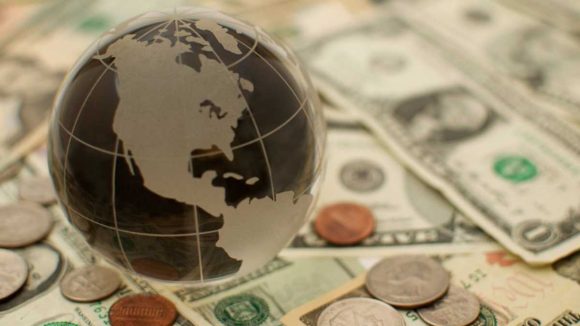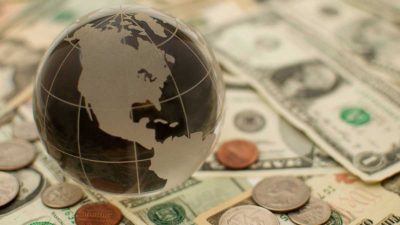European economies dominate the top ten ranking charts for the world’s strongest economies. The latest report published by the International Institute for Management Development (IMD) evaluates 67 economies in different categories, including government efficiency, business, and infrastructure.
Like previous years, European countries dominate this year’s World Competitiveness Ranking. Six European economies are ranked in the top ten. Asia’s largest economies, China, Japan, South Korea, and India, are absent; instead, Singapore, Taiwan, and Hong Kong take the highest scores.
Singapore is the most competitive economy out of 67 countries worldwide, measured by population size and GDP. Switzerland came in second, followed by Denmark.
Locate2u compares the US, the UK, and Australia’s economic, government, infrastructure, and business performance this year to see if there is improvement.
Comparing the UK, US, and Australia
The US ranks 12th place compared to over 60 other countries, competing for the top economic spot in the world. It’s followed by Australia, in 13th place overall, and far behind is the United Kingdom (28th).
The final score includes different elements. Australia has jumped six places this year, with a massive boost from its government’s efficiency.

Business efficiency
In 2024, the US ranked 19th out of all the competing countries. The main reasons for this are poor management practices and lower productivity and efficiency.
Australia’s labor market strength has improved drastically this year, boosting it to a pre-pandemic level compared to other countries. It now ranks 22nd on a business performance level.
The UK ranks 33rd place on the global scale of business efficiency. Some of the main reasons could be low productivity levels, poor management practices, and a lack of labor market performance.
Economic performance
When purely audited on its economic performance, the US is the number one stop worldwide. It ranks second place for its domestic economy, but on an international trade scale, it falls far behind, dropping to 35th place.
Australia’s domestic economy and international investment have increased significantly over the last year. However, many challenges keep pulling the country’s overall economic status down. Challenges include the high cost of living pressure on households, housing shortages, and social and economic participation.

The UK’s domestic economy dropped a significant eight places compared to 2023’s rankings. However, international trade and investment have increased over the last year. Its overall economic performance ranks 32nd place compared to other countries.
Government efficiency
The US’s overall economic performance seems to be hamstrung by its poor government performance. This year, it dropped to a whopping 34th place, a massive drop of around ten places compared to the last five years.
Australia’s government performance has strengthened to 13th place, the best it has been in the last five years. This could be attributed to strong institutional frameworks and business legislation.

The UK ranked 31st in government efficiency this year compared to other countries. The main culprits are its public finance and tax policies. Both these two areas rank amongst the bottom twenty countries in the world.
Infrastructure performance
The US ranks 7th on the world charts, a one-place drop from last year. Technology infrastructure, education, health, and the environment are areas that could be improved.
Australia’s infrastructure levels have returned to pre-pandemic levels, with technological infrastructure being the main driver. Compared to other countries, it ranks 18th.
The UK lacks basic infrastructure; however, it remains in the 22nd spot, which it occupied last year.
Why Singapore holds the top spot
Singapore last came in first place as the world’s top economic performer just before the devastating COVID-19 pandemic in 2020.
“The best-performing economies balance productivity and prosperity, meaning they can generate elevated levels of income and quality of life for their citizens while preserving the environment and social cohesion,” says Arturo Bris, director of IMD World Competitiveness Center.
AI productivity promises
While artificial intelligence (AI) seems to be the golden key to unlocking economies and boosting productivity, businesses face challenges.
How do businesses implement AI to boost efficiency without disrupting business activities? Another potential problem is choosing the right AI system that’s accurate.
According to a Slack study, Australia has the highest rate of employees using AI tools to complete their tasks compared to any other country. They outnumbered countries like Japan, the UK, the US, Germany, and France.
According to the International Monetary Fund’s managing director Gita Gopinath, we won’t know what the negative impact of AI is until there is a “downturn.” This, she warns, could spiral into a “full-blown crisis” unless the risks of AI are addressed.
Gopinath warns it could disrupt labor and financial markets, as well as supply chains. “Discussions on AI’s risks had largely focused on privacy, security, and misinformation, neglecting the very real risk of AI amplifying the next recession.”
PHOTO CREDIT: IMD
About the author
Mia is a multi-award-winning journalist. She has more than 14 years of experience in mainstream media. She's covered many historic moments that happened in Africa and internationally. She has a strong focus on human interest stories, to bring her readers and viewers closer to the topics at hand.











